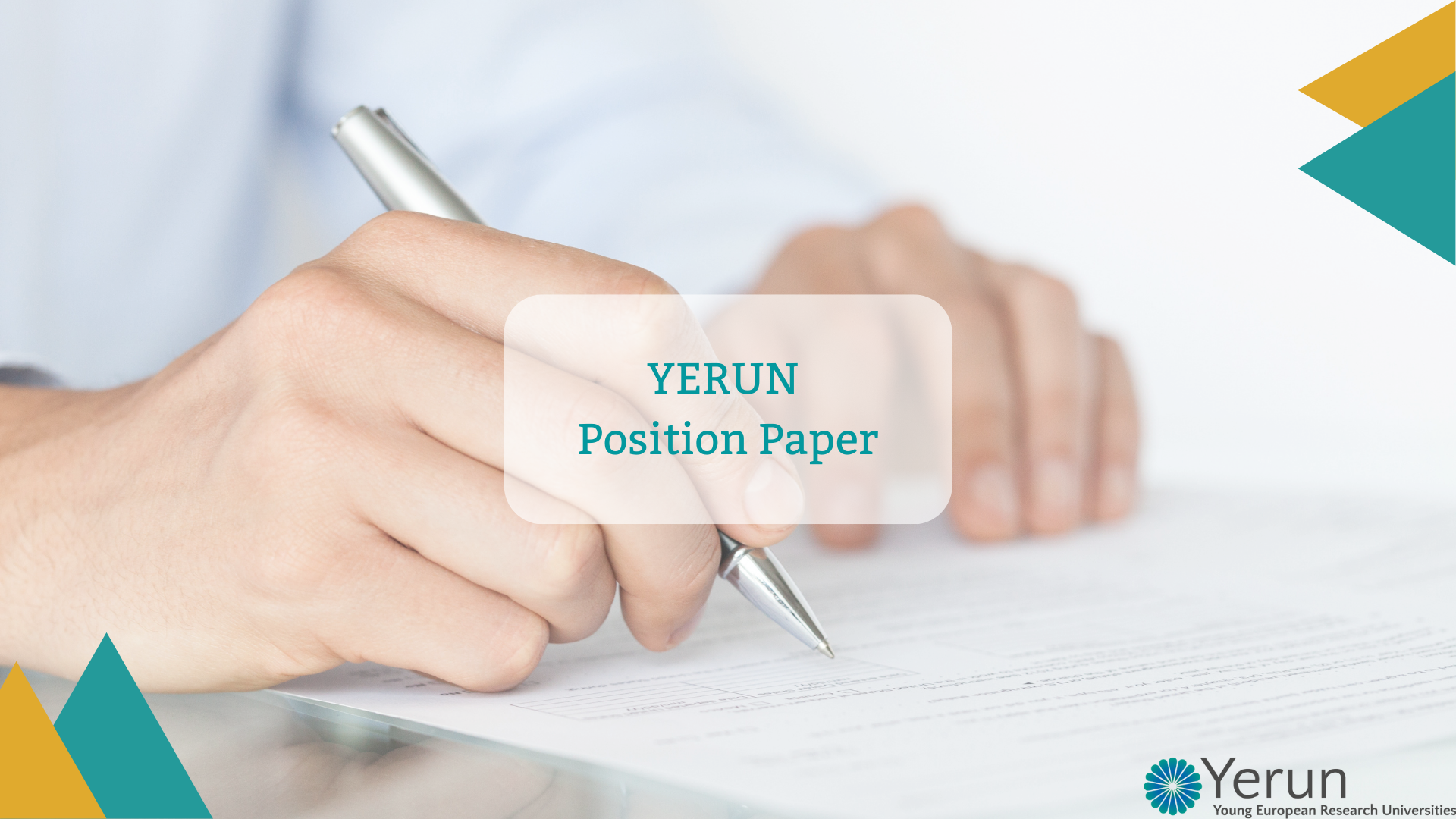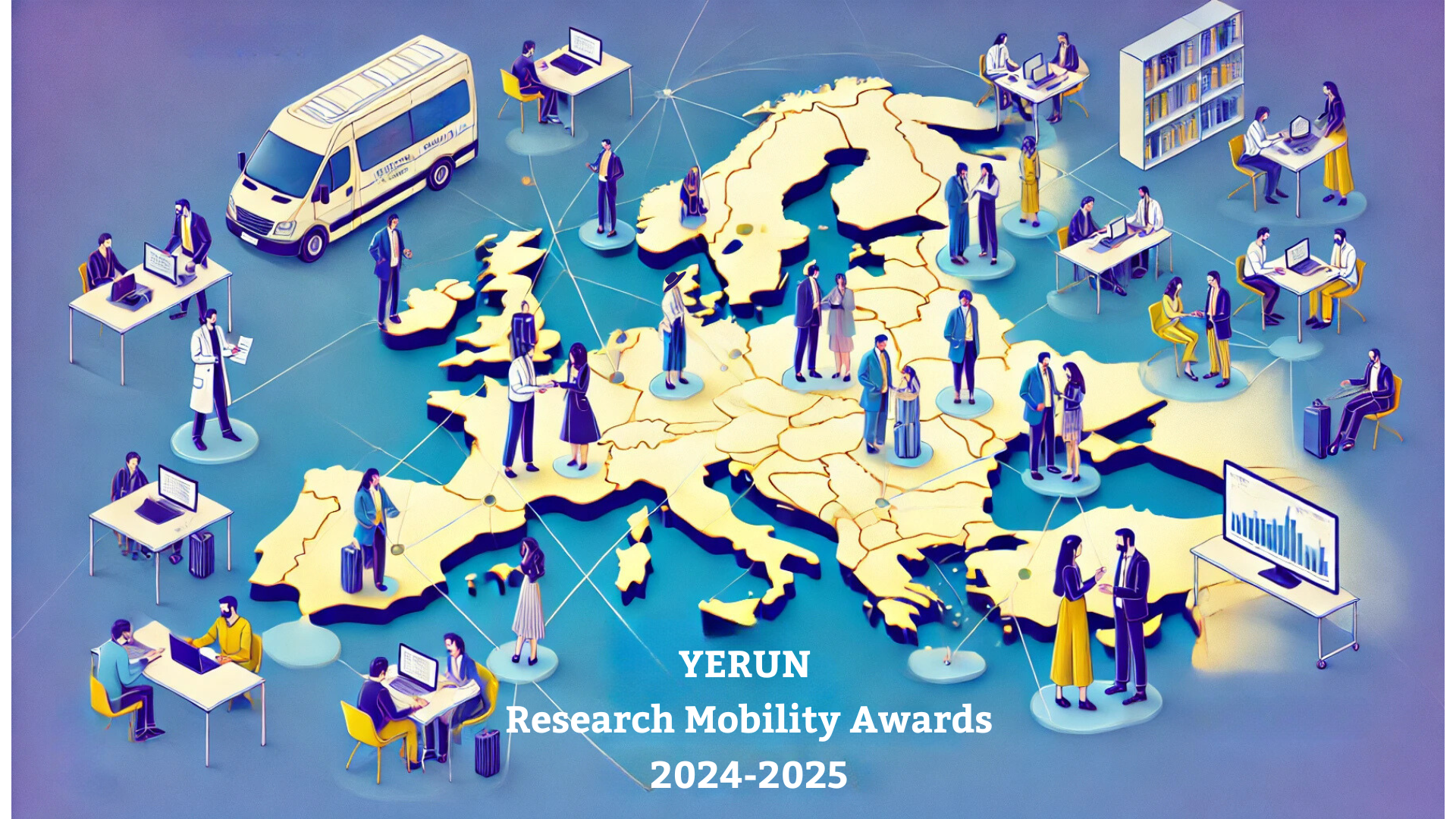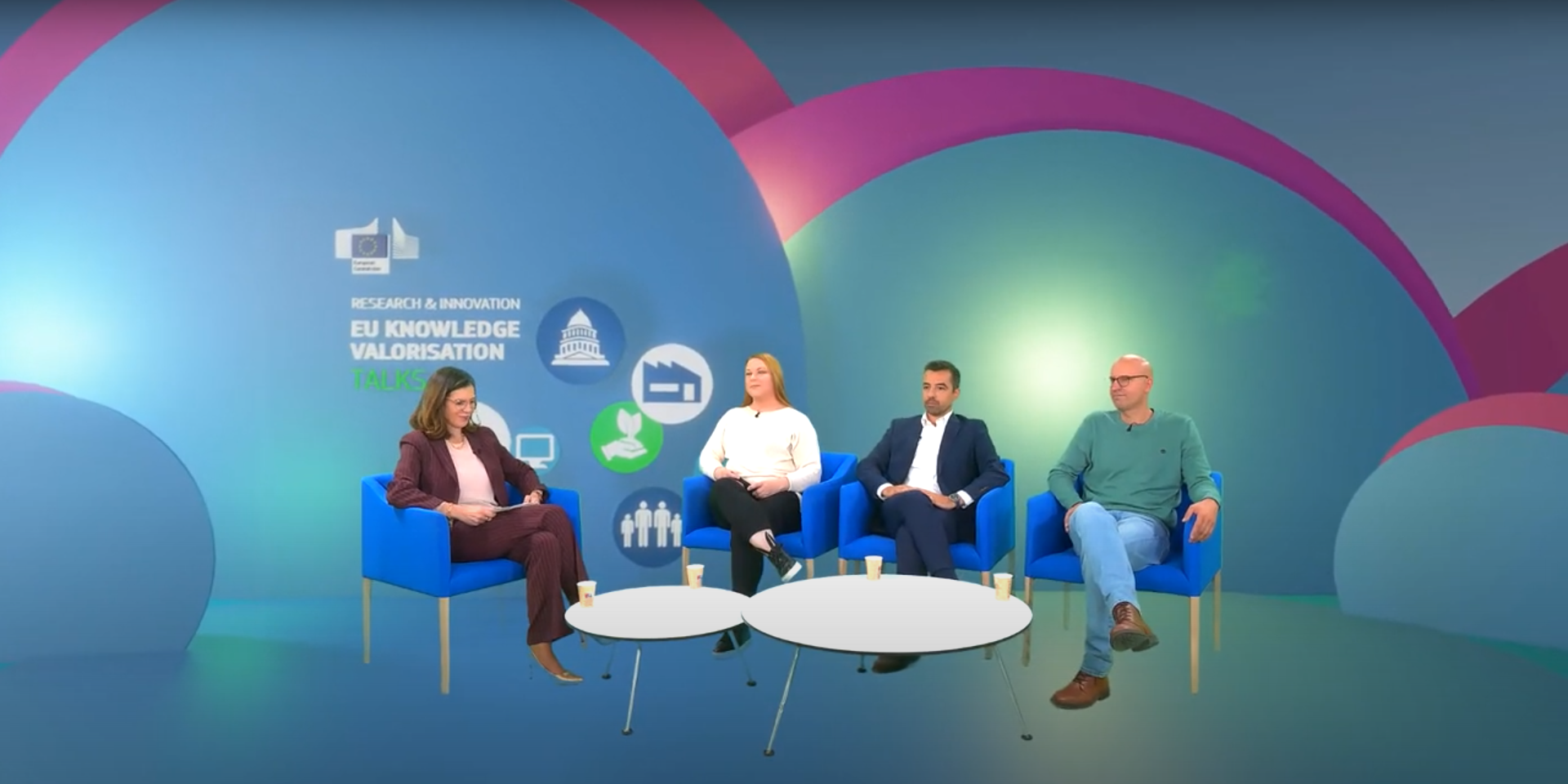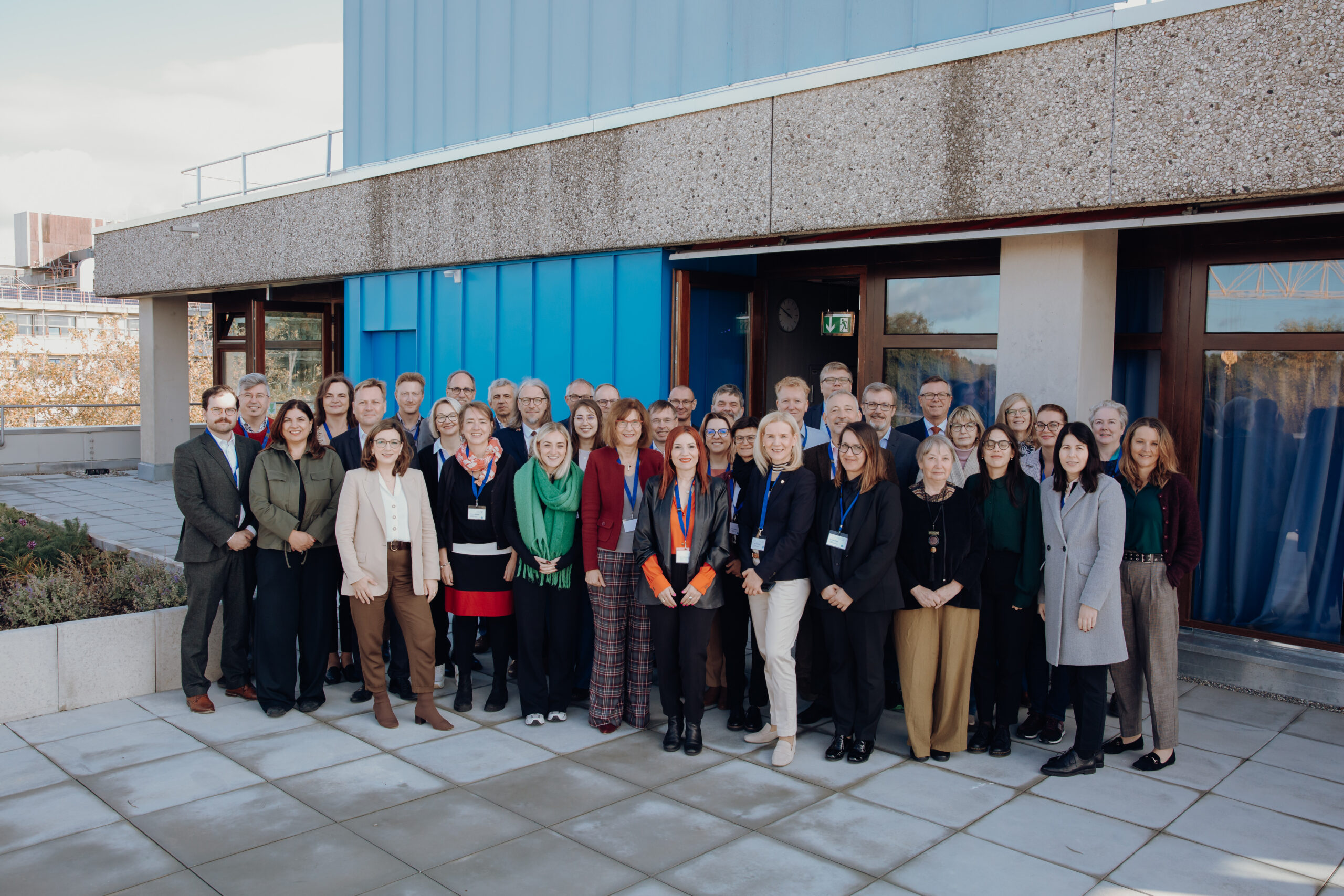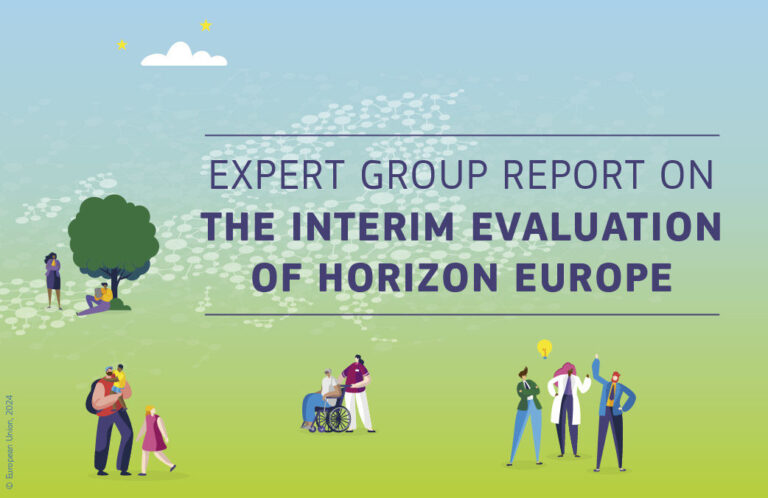In the context of the public consultation launched by the European Commission on Horizon 2020, Horizon Europe and its strategic planning, YERUN publishes a Position Paper highlighting issues of particular importance to our members. These issues are grouped in three categories: priorities, simplification and funding schemes.
Key take-aways from the paper:
Setting priorities to Horizon Europe
- Today’s basic research is the best guarantee to have the means to develop intellectual and technical tools to tackle current as well as future challenges. Adequate opportunities for research funding should be made across all Technological Readiness levels.
- Earmarking should be limited and should not be developed to the detriment of basic or blue-sky research. Scientists should be trusted to identify and address current and future challenges for our societies.
- Co-creation processes should be improved and promoted in identifying the priorities set to Framework Programmes.
- The added value of SSH must be properly recognised in the funding, representation and project opportunities on offer.
- Additional follow-up opportunities should be offered after completion of successful funded projects. The Commission should provide an overview of the aggregated impact of past projects in tackling policy objectives.
- Science should remain as open, global and collaborative as possible.
Simplifying and improving Horizon processes
- The Framework Programme should undergo a wide-ranging and profound simplification, especially regarding missions and partnerships. EU funding for R&I should not be spread too thinly over too many different instruments. A careful analysis of existing programmes should take place (e.g. the business model of the EIT should be reassessed).
- Newcomers face an excessively high threshold of access; they should be enabled to benefit fully from EU funding opportunities.
- Lump-sum funding should only be rolled-out where it doesn’t cause additional difficulties (both pre- and post- award) and financial risks, and only after a full evaluation of the system.
- It is paramount to properly fund at EU level adequate research management capacity for researchers responding to EU calls. Coordination costs related to participation in consortia should be adequately recognised and funded.
Funding schemes, conditionality and synergies
- Some features of Horizon Europe have perverse effects disproportionately affecting younger or smaller institutions. Co-funding schemes create an excessive financial burden on universities in certain Member States.
- The wider impact of Horizon Europe fixed-term grant schemes on research careers should be critically evaluated in light of achieving the objectives of ERA Action 4.
- Synergies should be better encouraged with other EU funds, notably Structural Funds.
- Research policy implemented through the Recovery and Resilience Facility and National Recovery Plans should be put up for review and informed by expert and stakeholder engagement, which has been absent so far. RRF funding in research matters should be used to increase research management capacity.
Read the full Position Paper here.

